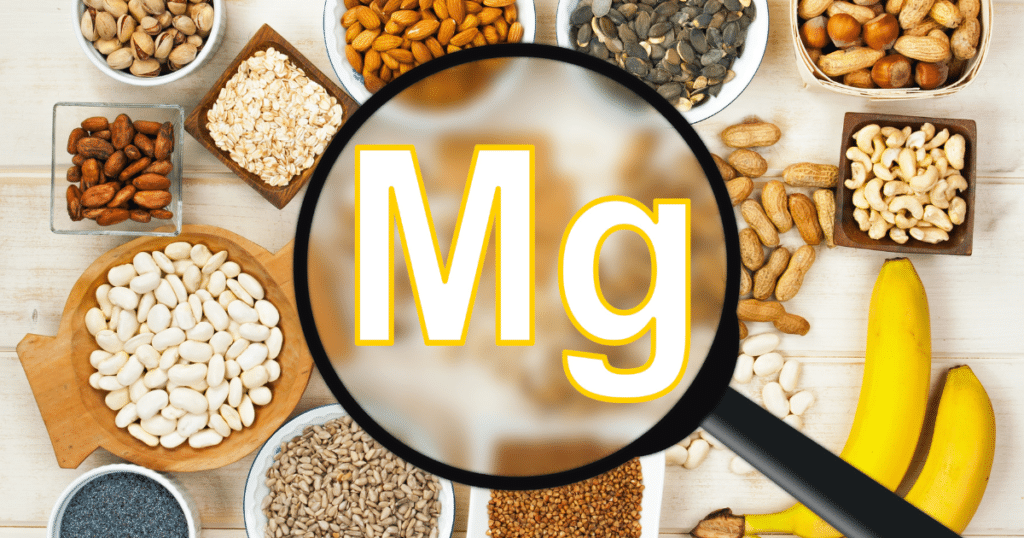Magnesium and Insulin for Better Blood Sugar Management?
Magnesium is a powerhouse mineral, yet it’s often overshadowed by nutrients like vitamin C and zinc. This is a huge oversight, especially since some estimates suggest nearly half of all Americans don’t get enough of this crucial nutrient.
As a certified sports nutritionist with decades of experience, I’ve seen how optimizing micronutrient intake can be a game-changer for health and performance. Magnesium, in particular, is involved in over 300 biochemical reactions that keep your body running smoothly.
Think about essential functions like muscle and nerve function, energy production, blood pressure management, and even getting better sleep. Magnesium is a key player in all of them.
This guide will focus specifically on the powerful connection between magnesium and insulin, explaining how getting enough of this mineral through diet and smart magnesium supplements can be a vital strategy for blood sugar management.
Disclaimer: This article is for informational purposes only. It is not meant to treat or diagnose any condition. The information found within this article is not medical advice and should not supersede a doctor’s diagnosis and treatment plan should you have a health condition. The use of magnesium should never be a replacement for any medication that your doctor puts you on.
Table of contents
Key Takeaways
- Magnesium is a critical mineral for over 300 bodily functions, including blood sugar control, yet nearly half of Americans are deficient.
- It plays a direct role in how your body metabolizes carbohydrates and how effectively your cells respond to insulin.
- Studies show adequate magnesium intake is linked to better insulin sensitivity and a lower risk of type 2 diabetes.
- You can increase your magnesium levels through foods like pumpkin seeds, almonds, and spinach, or by using a high-quality supplement.
- Different forms of magnesium, like glycinate and citrate, offer different benefits for absorption and digestive comfort.

Better Glucose Management Through Magnesium
While many people focus on macronutrients like protein, carbs, and fat, the micronutrients in your food are just as vital for optimal health. Magnesium is a perfect example.
The Recommended Dietary Allowance (RDA) for adults is 400-420 mg daily for men and 310-320 mg for women. Unfortunately, modern farming and diets high in processed foods have made it harder to meet these targets.
You can significantly boost your intake by incorporating magnesium-rich foods into your diet. The Cleveland Clinic highlights several excellent sources.
Top Foods High in Magnesium:
- Pumpkin seed kernels: 168 mg per 1 oz serving
- Almonds, dry roasted: 80 mg per 1 oz serving
- Spinach, boiled: 78 mg per ½ cup serving
- Cashews, dry roasted: 74 mg per 1 oz serving
- Soymilk, plain or vanilla: 61 mg per 1 cup serving
- Black beans, cooked: 60 mg per ½ cup serving
- Edamame, shelled, cooked: 50 mg per ½ cup serving
If you find it difficult to get enough magnesium from food alone, a high-quality supplement can fill the gap. Forms like magnesium glycinate are known for being gentle on the stomach and well-absorbed, making them an excellent choice for daily use.
How Does Magnesium Help Control Blood Sugar?

Whether you get it from food or a supplement containing this crucial nutrient, magnesium directly impacts how your body handles glucose. It works in two primary ways to support healthy blood sugar levels and glucose management.
1. Improve Carbohydrate Metabolism
Magnesium is a required cofactor for over 300 enzyme systems in your body, many of which are essential for converting carbohydrates into usable energy. Without enough magnesium, your body’s ability to metabolize carbs efficiently is compromised.
This mineral helps ensure the glucose from carbohydrates is burned for fuel rather than being stored as fat. For anyone looking to lose weight, this is a significant benefit. Proper magnesium levels can support an active lifestyle by providing the energy needed for workouts and daily activities.
Related Article: Blood Sugar Stabilizer — The Power of Glucose Disposal Agents

2. Better Insulin Management
This is where magnesium truly shines for blood sugar control. It plays a critical role in insulin signaling and sensitivity. Essentially, magnesium helps your cells “listen” to insulin more effectively.
A 2022 meta-analysis published in the British Journal of Nutrition found that magnesium supplementation modestly improved both fasting blood sugar and HbA1c levels in people with type 2 diabetes. This highlights its direct impact on long-term glycemic control.
Magnesium acts as a key helper for the insulin receptors on your cells. Specifically, it is necessary for the proper function of an enzyme called tyrosine kinase, which allows insulin to do its job of moving glucose from your blood into your cells. When magnesium levels are low, this process becomes inefficient, leading to insulin resistance.
Related Article: Have You Considered Trying GlucoVantage — The Ultimate Super Berberine!
For those with prediabetes or diabetes, maintaining adequate magnesium levels is crucial. Research consistently shows that higher magnesium intake is associated with a lower risk of developing diabetes. If you have diabetes, speak with your doctor before adding a magnesium supplement to ensure it’s right for you and won’t interact with your current medications.
Which Type of Magnesium Is Best?
Not all magnesium supplements are created equal. The form of magnesium determines how well your body can absorb and use it (its “bioavailability”) and its potential side effects. From my experience, choosing the right type is key to getting results.
| Type of Magnesium | Key Benefits & Uses |
|---|---|
| Magnesium Glycinate | Highly absorbable and very gentle on the stomach. Excellent for improving magnesium levels without causing digestive issues. It’s often my top recommendation for general health and blood sugar support. |
| Magnesium Citrate | Also well-absorbed by the body. It has a natural laxative effect, so it’s a good choice for those who also experience constipation, but the dosage should be managed carefully. |
| Magnesium Malate | Known for being well-absorbed and is sometimes recommended for energy support and muscle soreness, in addition to its general benefits. |
| Magnesium Oxide | Often found in multivitamins but has lower bioavailability compared to other forms. While some studies show it can improve blood sugar, it’s more likely to cause digestive side effects. |
Magnesium FAQs
How much magnesium should I take for blood sugar?
Most studies showing benefits for blood sugar control use dosages between 300-400 mg of elemental magnesium per day. However, it’s critical to check the “elemental magnesium” amount on the supplement label, as the total weight of the compound (e.g., magnesium glycinate) will be higher. Always start with a lower dose and consult your doctor.
When is the best time to take magnesium?
Many people find taking magnesium in the evening helpful, as it can promote relaxation and support better sleep. If you are taking a larger dose, you might consider splitting it between the morning and evening to improve absorption and minimize any potential digestive discomfort.
Can I get enough magnesium from food alone?
While it is possible, it can be challenging for many. Due to soil depletion and dietary habits, a significant portion of the population falls short of the RDA. A food-first approach is always best, but a supplement can be a reliable way to ensure you’re meeting your daily needs.
Are there any side effects?
The most common side effect of magnesium supplementation is digestive upset or diarrhea. This is more common with certain forms, like magnesium oxide, and at higher doses. The Tolerable Upper Intake Level (UL) for supplemental magnesium is 350 mg per day for adults, which is the maximum daily intake unlikely to cause adverse effects.


*Disclosure: This article may contain affiliate links or ads, which means we earn a small commission at no extra cost to you if you make a purchase through these links. These commissions help support the operation and maintenance of our website, allowing us to continue producing free valuable content. Your support is genuinely appreciated, whether you choose to use our links or not. Thank you for being a part of our community and enjoying our content.
PLEASE CONSIDER SHARING THIS ON YOUR SOCIAL MEDIA TO HELP OTHERS LEARN MORE ABOUT THIS TOPIC.





